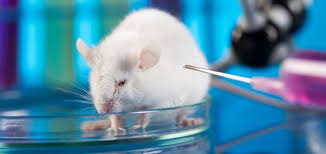Today, I should like to show you an important and encouraging news for Spain and the rest of the world: “Some scientists included a spanish one can prevent Alzheimer's in mice by injecting a gene”.
A team of researchers, led by the Spaniard, Magdalena Sastre, has developed a method to prevent Alzheimer's, in mice, by injecting a virus, that can transmit a specific gene to the brain, according to a study published in Proceedings of the National Academy of Sciences of the United States of America.


This finding by scientists at Imperial College London, although it is in its early stages of research, it could open the door to possible new treatments for the disease. Scientists believe this gene, called PGC1 - alpha, can prevent the formation of amyloid-beta peptide protein, in cells, in the laboratory.
This protein is the main component of amyloid plaques, a viscous mass of proteins found in the brains of people with Alzheimer's, and it is thought that they trigger the death of brain cells.
This discovery may encourage new approaches, to preventing or stopping the disease, in its early stages. "Although these findings are still very early, they suggest that this gene therapy may have potential therapeutic use for patients. There are many obstacles to overcome yet, and currently the only way to transmit this gene is through direct injection into the brain", explained the Dr. Sastre, lead author of the study, from the Department of Medicine at Imperial College.
The researchers injected the virus with the gene, in two areas of the brain of mice, where Alzheimer's could be developed, in the hippocampus (which controls short-term memory) and the cortex (which controls long-term memory), and they are the first where amyloid spots start.
The animals were treated, in the early episodes of the disease, while they still do not have these spots, and, four months after, it was found that the mice that had received the gene had very few of these spots, compared with the group of mice, that had not been treated. As well, no loss of brain cells, in the hippocampus, was recorded.
The Sastre doctor added that other studies suggest that exercise and the resveratrol component, found in red wine, can help the levels of this PGC-1 gene, although it only has benefits in pills, since in the wine, the presence of alcohol deactivates it. "We still have years to use this one, as a clinical treatment. However, in an urgent disease, that needs new options for patients, this work offers hope for future therapies", said Sastre.
The research was funded by the Agency for Research on Alzheimer's from the UK and the European Research Council.
Alzheimer's, which currently has no cure, although there is treatment to lessen some symptoms, involves memory loss, confusion and personality change. Worldwide more than 47 million people suffer from dementia, of which Alzheimer's is the most common form.
I hope that you have liked this article.
Until my next post, kind regards,
Luis.
Sponsored by Costaluz Lawyers.
Please click below:
